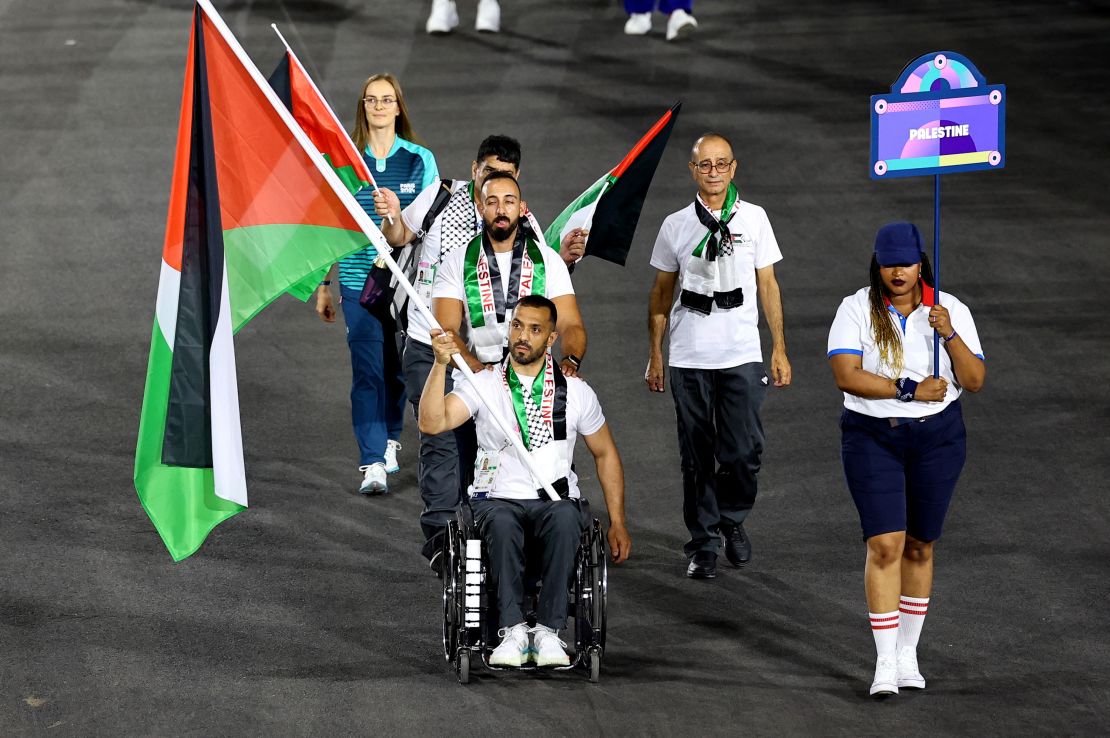Fadi Aldeeb missed multiple calls from his brother nine months ago. He learned that he had died in an Israeli attack on his house the following day. Ten years ago, Aldeeb left the Gaza Strip to pursue a wheelchair basketball career that first took him to Turkey and Greece and now brings him to the Paris Paralympics as the only Palestinian athlete.
“After my French league game on December 6, I discovered that my brother had called me numerous times. The Paralympic shot put competitor Aldeeb told Reuters, “I tried to call back but there was no connection.””I was informed that your brother had died in an attack on our building on December 7th, at night,” said Aldeeb, adding that he often wonders what his brother’s last message was.
Aldeeb is under pressure to represent his people at the Paralympics in Paris, as he claims. “There are too many emotions and too much responsibility, as I’m not talking about or acting in my own best interests. “I am here to speak about Palestine’s freedom, for all those who identify as Palestinians, for 11 million people,” he declared.
He declared, “We are [demonstrating] that we are still alive, that we still need our freedom, and that we need our human rights when we raise the flag here in Paris.” The International Olympic Committee recognized the Palestine Olympic Committee thirty years ago. About 2.3 million people live in Gaza, and millions more Palestinians are dispersed throughout the country.
Aldeeb is under pressure to represent his people at the Paralympics in Paris, as he claims.The assistance of other athletes Aldeeb, 40, claimed that during the second Intifada, or uprising against Israeli occupation, in 2001, he was shot in the back by an Israeli soldier, resulting in his paralysis.
When discussing life in Gaza, he raises his voice. According to the health ministry, since Israel started a devastating offensive against Hamas on October 7 of last year, which resulted in an attack on southern Israel, over 40,000 people have died in Gaza.
Israeli tallies of the attack indicate that about 1,200 people were killed and about 250 were taken hostage. After the Paralympics, Aldeeb plans to resume playing wheelchair basketball in the Genevilliers neighborhood of Paris. He believes that Israel’s military is a “killing machine.”
“Athletes, people with disabilities or not, women or children, large or small homes, hospitals, hotels, universities, or schools—there is no difference [for Israel’s military].”
Israel claims that Hamas is the target of its offensive, not ordinary citizens. It alleges that Hamas fighters put civilians in danger by hiding in public buildings like hospitals, but it also claims to take extreme measures to prevent harm to civilians. Aldeeb expressed his unease about Israeli athletes being in Paris, where a ceremony honoring Israeli Olympic team members killed by Palestinian gunmen at the Munich Olympics in 1972 was held prior to the Games.
“I’m not feeling that I’m alone or feeling like I’m alone, these people really, it’s amazing and incredible, they give me a feeling of humanity,” he said, acknowledging the support he had received from other competitors. Before the Olympics, which were also held in Paris this summer, a far-left lawmaker declared that Israel’s delegation was not welcome and demanded protests against its participation. Following his remarks, France declared that Israeli athletes would receive round-the-clock security.
According to the Olympic charter, athletes should be able to express themselves freely, but no “political propaganda” is allowed in any Olympic venues, sites, or other locations. Speaking outside the Olympic Village was Aldeeb.

